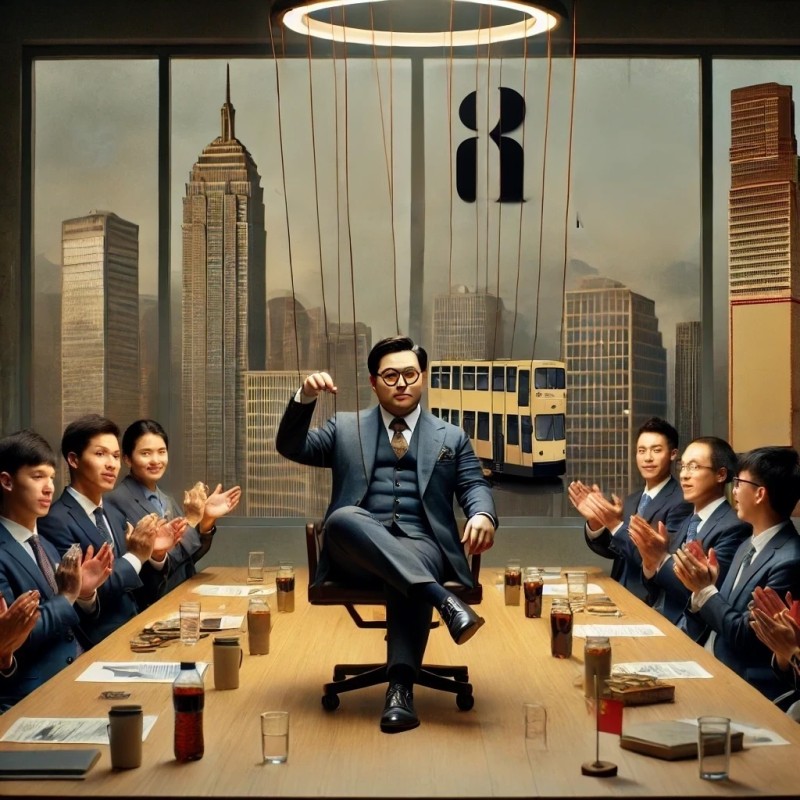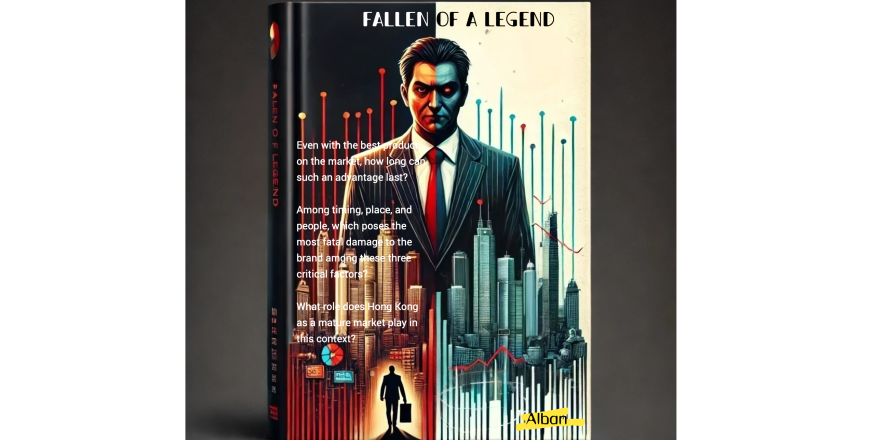 x
x
With Ma Yonglong’s introduction as the new business director for Hong Kong, he received a round of applause following An Zhiren’s announcement, which emphasized Ma’s role in strengthening the Hong Kong office and the company’s commitment to the market. After a brief self-introduction, where he shared his background in the pharmaceutical industry, he seemed like a reliable business professional. He quickly met with the Hong Kong management team to understand the challenges they faced, and everyone worked to support him as he familiarized himself with the market. Deborah, in particular, kindly warned him of potential pitfalls in the company to avoid offending influential people.
Danny then began taking Ma on visits to important clients. However, Ma’s vocabulary was lacking, and he often repeated the same adjectives like “interesting,” “effective,” and “great,” or simple phrases like “this is the best” and “ok.” His responses were formulaic, often agreeing with whatever was said without adding value. Lacking product knowledge, Ma approached client meetings with a sense of obligation rather than engagement. When unable to address client issues, he would bring along large groups of colleagues to demonstrate "strong support," yet his promises often went unfulfilled and were forgotten.
Clients, who had high expectations of Allie’s representatives, grew increasingly disappointed and reluctant to meet with him. Danny, while refraining from direct criticism, couldn't help but think that Ma was less capable than even a third-rate salesperson, a far cry from someone with a sales background.
 Ma Yonglong avoided sharing his background with clients, leaving them unclear about his experience. This reluctance extended to colleagues as well, who barely knew anything about him. He spent most of his time secluded in his office, seldom joining others for lunch, and often leaving without any interaction. When the company needed him to tap into his network from his previous positions in the pharmaceutical industry, he left it alone and kept tight-lipped about his past and connections.
Ma Yonglong avoided sharing his background with clients, leaving them unclear about his experience. This reluctance extended to colleagues as well, who barely knew anything about him. He spent most of his time secluded in his office, seldom joining others for lunch, and often leaving without any interaction. When the company needed him to tap into his network from his previous positions in the pharmaceutical industry, he left it alone and kept tight-lipped about his past and connections.

The team’s understanding of Ma Yonglong was limited to his position and his interests. He seemed to prefer having Carrian manage the company's administrative and customer service issues or discussing showroom development strategies with Huang Zi in his office. Ma rarely showed interest in client relations, sales, or marketing strategies, likely because customer service and the showroom fell within his comfort zone. Carrian’s ability to please superiors and Huang Zi’s approachable nature allowed Ma to feel comfortable, temporarily escaping the pressures of business management.

Ma Yonglong’s first real test came when he had to prepare the annual business plan, which needed to be submitted to An Zhiren and upper management for approval. Feeling the pressure, Ma knew he had to complete the task within a week. Luckily, the department heads were experienced and had already compiled the necessary data for him.
However, under stress, Ma’s true nature began to surface. The team quickly noticed the following traits:
- He always gathered the department heads for meetings but never made decisions on his own. He avoided taking responsibility, preferring to reach collective decisions so that the team would share the consequences.
- He was reluctant to try new things, hesitating to make any decisions. It seemed like he wanted the world to stay unchanged so he could feel safe.
- He was overly cautious and fearful, especially when facing An Zhiren’s dissatisfaction. Ma would immediately abandon any agreed-upon plans, fully complying with An Zhiren’s wishes.
The seasoned Hong Kong management team quickly grew disillusioned. They couldn’t believe that the “talent” An Zhiren had promised was nothing more than a puppet, loyal only to An. Ma Yonglong wasn’t there to make the Hong Kong team stronger—his real role was to help An Zhiren remove disobedient employees.
With Ma’s assistance, An Zhiren’s power grew unchecked. The first move was to demote Deborah, replacing her with Zhang Xianni, a loyalist from Taiwan. Zhang had survived An Zhiren’s reshuffle in Taiwan and had become his close ally. Meanwhile, Ma reassigned Danny to handle only key clients, with the rest of the sales team reporting directly to him. It was clear that An Zhiren was using Ma to remove both Deborah and Danny.
This restructuring hit Deborah hard, while Danny saw it as a great insult to have the entire sales team placed under the direction of someone he viewed as an incompetent sales leader. To make matters worse, An Zhiren shifted company strategy toward acquiring new clients, diverting resources from Danny’s key accounts. As a result, the sales from key clients began to drop, which was inevitable given the lack of support and resources. Both Deborah and Danny, much like Miriam before them, felt powerless and disillusioned but could only look on with regret as their long-standing client relationships began to erode.

The culture that Kenji had painstakingly built at Allie’s Hong Kong branch slowly crumbled under Ma Yonglong’s leadership. Allie was no longer a company that pursued excellence—it had become a sinking ship, with employees losing the will to save it. The passion that attracted people to join the company was gone, replaced by continuous resignation.
With a controlling, authoritarian leader like An Zhiren in charge, employees became passive, only following orders and waiting to be told what to do. This dynamic validated An Zhiren's dictatorial methods and created an environment where the workforce became powerless and complacent. It bred a culture of sycophancy, where creativity and initiative were replaced by submission, and employees were reduced to mere objects of management, ultimately contributing to the company's decline.
ns 15.158.61.14da2






















